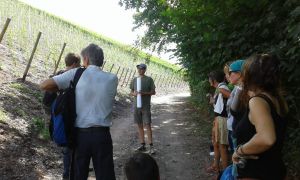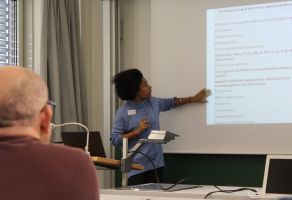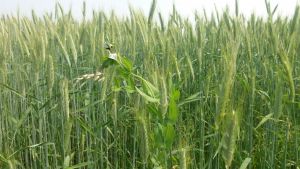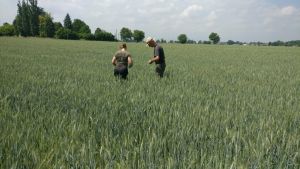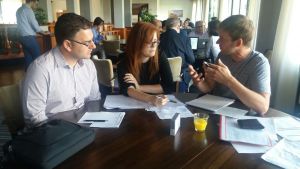- Details
Researchers from the University of Trier presented the crop diversification options for German vineyards
By means of a guided walk through the vineyards located in the city of Trier (Germany) and at the hands of the researchers Felix Dittrich and Thomas Iserloh from the University of Trier, the people participating in the activities of the Local Agenda 21 in the city could know the background to ecological production and how crop diversification can improve the productivity of the wines from the Mosel wine-producing area.
- Details
The number of women and their presence in powerful posts equals that of men in the Diverfarming European project
A total of 69 female researchers and technicians have been participating in Diverfarming, the project on crop diversification financed by the Horizon 2020 programme of the European Commission, for slightly more than one year. The figure, which supposes 47 percent of the project’s team, is the proof of Diverfarming’s pledge on gender equality. The list of women in Diverfarming is led by Marina Giménez of the Office for International Projects at the Universidad Politécnica de Cartagena, who is its Project Manager.
- Details
Several research groups together with companies and farmers seek to increase the sustainability of European agriculture by sharing strategies and tools
The weight of the agricultural sector in Europe and the need to face the problems that stop the sector from being sustainable economically nor environmentally are part of the breeding ground that motivates the financing of projects that research in this line.
- Details
The European Diverfarming project tries out crop diversification in five experimental lands in Italy
Those people who are dedicated to agriculture in Italy have to face increasing environmental problems such as the low concentrations of organic material in their soils or the erosion and compacting of said soils. Added to this they must deal with land and water contamination. Seeking to find solutions to this situation, the Council for Agricultural Research and Analysis of the Agrarian Economy (CREA) and the Univeristy of Tuscia together with farmers and experts in the agri-food chain such as Barilla and the Consorcio Casalasco del Tomate will assess the diversification systems introduced in two zones with different climate conditions: the Po valley (north) and the region of Apulia (south), over a period of three years.
- Details
The research team of the Diverfarming project, financed by the European Commission, agrees on a common methodology to evaluate the environmental and socioeconomic impact of the combination of crops as opposed to monocropping practices with high inputs.
Europe continues to drive the first scientificassessment works on agricultural practices based on crop biodiversity. This has been done thanks to the Diverfarming project, whose scientific team, led by Raúl Zornozafrom the Universidad Politécnica de Cartagena, reached a consensus last week inAmeland (Netherlands) on the methodologies and criteria that will serve to answer the big question: is it really profitable to combine crops on the same land, whether it be by rotations or by means of simultaneous crops at the time?







